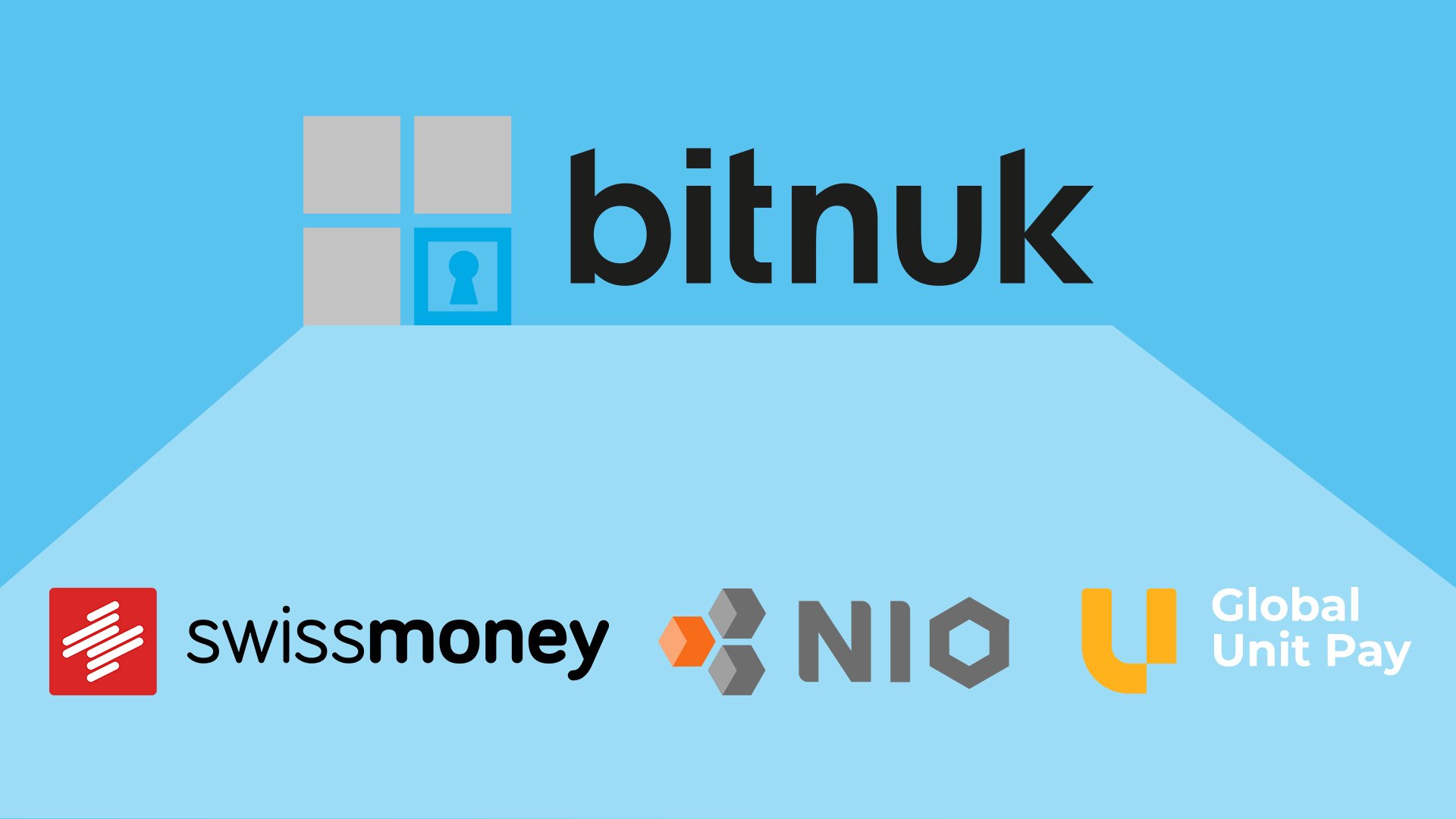
Switzerland’s fintech company Bitnuk today announced its whitelabel solutions for well-known financial service providers SwissMoney, NeoFinance and GTI.
The company offers innovative blockchain-based software for business clients that are looking for a multifunctional cryptocurrency payment infrastructure, that includes functionalities, security, compliance and regulatory.
One-Stop-Shop Licensed Payment Gateway
Blockchain-based Bitnuk infrastructure combines the crucial services of traditional banking with digital asset exchange and cryptocurrency wallet functionality. This means the verified users can open SWIFT or SEPA accounts on various European banks, deposit and withdraw funds and quickly access Forex, crypto, or precious metal trading. The platform also enables monitoring and management of investment portfolios.
The all-in-one payment software supports several cryptocurrency trading pairs and enables instant fiat-to-crypto or crypto-to-crypto conversions. It is Swiss licensed for custodian services and enables multi-wallet functionality for different asset classes.
Bitnuk is fully licensed and audited by Switzerland’s financial authorities. The Swiss licensing is automatically attributed to any branded solution launched on Bitnuk infrastructure, including the SwissMoney, NeoFinance and GTI.
The company is regularly audited by Switzerland’s financial authority and operates the regulation of ARIF, the self-regulating body approved by the Swiss Financial Market Supervisory Authority (FINMA).
Sponsored
The great advantage of Bitnuk is that the platform has full integration with automated KYC verification and Anti-Money Laundering (AML) compliance service industry leader GlobalPass.
Real-time transaction monitoring helps to detect the constant risk of fraud during the customer onboarding process.
Saving Time And Costs For Businesses Worldwide
The global infrastructure of financial services is currently fragmented. Numerous operators provide different services, while the global demand for multifunctional payment service providers is high.
On the other hand, companies worldwide operate in the markets with a lot of potential clients, however have difficulties in setting up businesses in Western Europe. The infrastructure solutions and the regulated environment become the leading criteria for them to buy a one-stop-shop infrastructure instead of developing it themselves.
Creating a trusted and secure payment infrastructure takes years of development, testing and licensing, which makes the process expensive and time-consuming.
